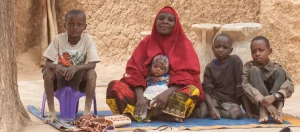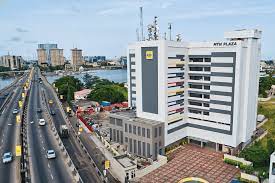
African Economic Outlook 2022, released by the African Development Bank (AfDB), has projected the average growth rate of Nigeria’s economy this year through to 2023 at 3.2 per cent.
The report, which was released yesterday at the ongoing Annual General Meeting (AGM) of the Bank in Accra, Ghana, focuses on the growth prospect of the continent in the context of the COVID-19 pandemic, climate change adaptation, energy transition and other structural challenges.
The report unveiled by the President of the Bank, Dr Akinwumi Adesina, his team and the Board of Governors, examines the economic outlook at the regional level and country-by-country basis.
AfDB’s projection is slightly higher than the 3.11 per cent growth rate of Q1 as released by the National Bureau of Statistics (NBS) on Monday.
The report also estimates the inflation rate to remain elevated at 16.9 per cent in the year and stay above the pre-COVID era until next year. Last month, the inflation rate jumped to 16.82 per cent, forcing the Monetary Policy Committee (MPC) to leave the sidelines and raise the policy rate by 150 basis points on Tuesday.
The report warns that the marginal current account surplus of 0.1 per cent gross domestic product (GDP) could turn to a deficit of 0.2 per cent next year, highlighting insecurity and infrastructure deficiency as major blights on the economy.
“Improved revenue collection will help narrow the fiscal deficit to an average of 4.5 per cent of GDP. Public debt is targeted to reach 40 per cent of GDP by 2024 on fresh borrowing. The headwinds to the outlook may be exacerbated by rising insecurity and policy uncertainty underpinned by reversal of initially planned removal of subsidies on premium motor spirit a year before the 2023 elections,” the document states.
AfDB expects climate change to reduce crop yields by seven per cent in the short term and 25 per cent by 2050 as rising in temperature could undermine agricultural productivity greatly.
Notwithstanding the challenges, it sees capital inflow into the country recovering in the coming months.
On Africa, it points to improving fundamentals but notes that “considerable challenges remain in the medium term, due largely to the persistence of the pandemic effect and volatility by the impact of the Russia-Ukraine conflict”.






